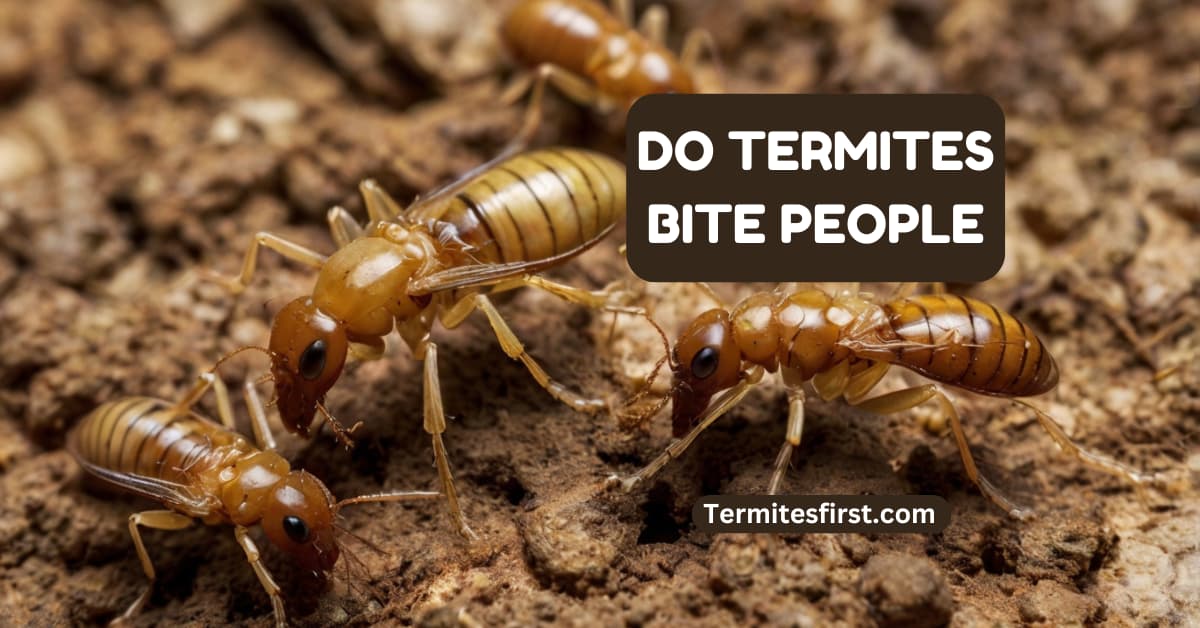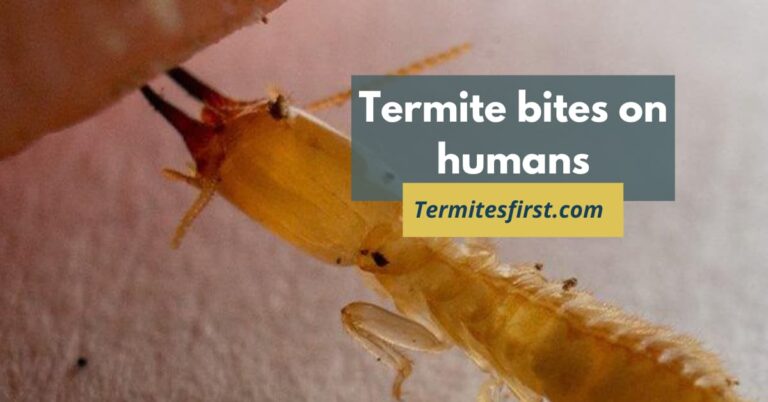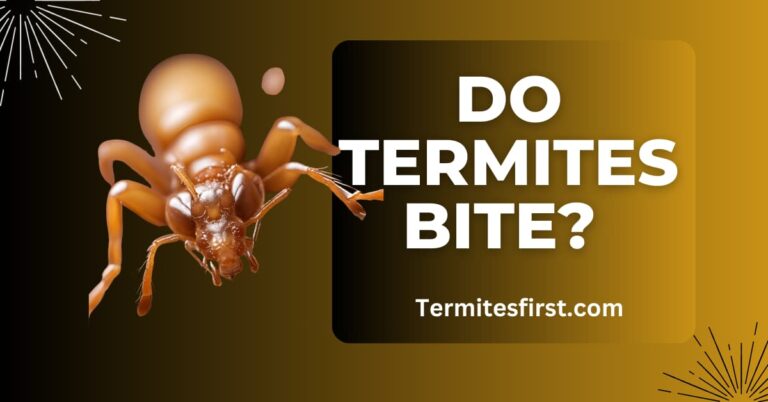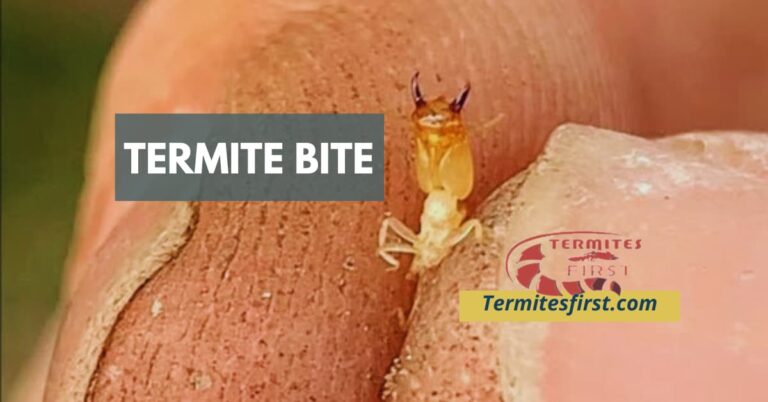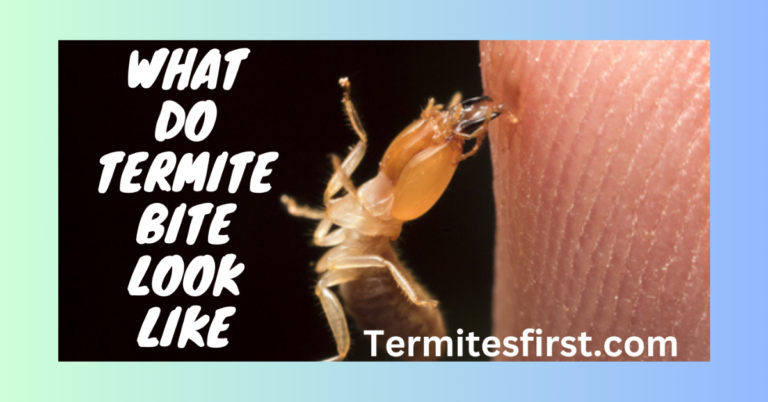Do Termites Bite People? Risks and Prevention Explained
Do termites bite people? This question often pops up when I think about these pesky insects, like termite swarmers and termite soldiers, especially in the context of unchecked termite infestations and a potential termite invasion. While termites are notorious for damaging wood, many wonder if they pose a threat to humans. I’ve done my research and discovered some interesting facts. Termites primarily feed on cellulose found in wood, but they can bite if provoked. Their bites aren’t harmful like those of other pests, but they can be uncomfortable. Understanding termite behavior helps me appreciate their role in the ecosystem while keeping my home safe. In this post, I’ll dive deeper into whether termites bite people, what it feels like, and how to manage any potential encounters. Let’s get into it!
Key Takeaways
- Termites primarily feed on wood and do not typically bite humans, but they can cause structural damage to homes.
- If you suspect termite activity, inspect your home for signs like discarded wings or mud tubes, as early detection is crucial.
- While termite bites are rare, they can occur; if bitten, monitor for allergic reactions or infections.
- To prevent termites, maintain your home by sealing cracks, reducing moisture, and storing wood away from the foundation.
- Educate yourself about common termite myths, such as the belief that all termites are harmful; some species can actually be beneficial to the ecosystem.
- If you find evidence of termites or extensive damage, contact a professional exterminator promptly to address the issue before it worsens.
Understanding Termite Behavior
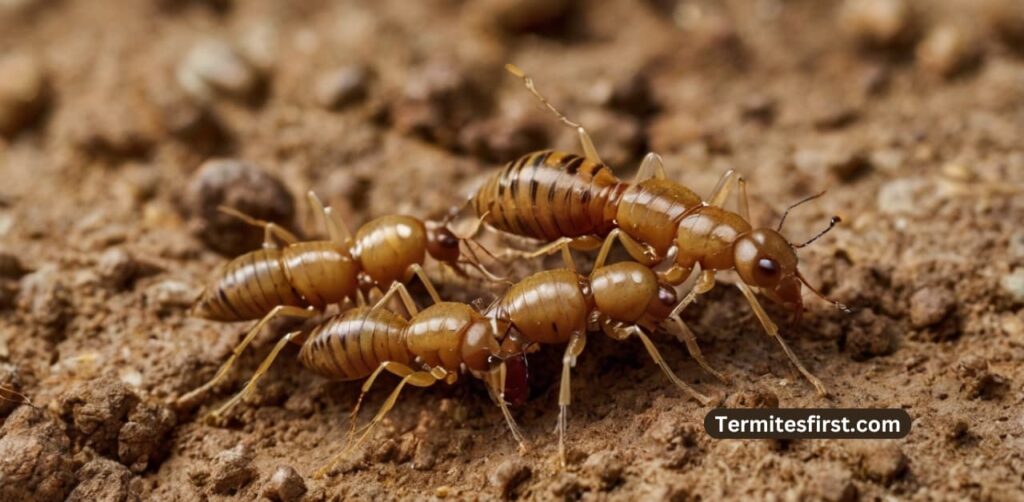
Overview of Termite Types
Worker termites play a crucial role in the colony. They forage for food and maintain the nest. These termites are responsible for feeding the queen and other members. Their tireless efforts ensure the survival of the colony.
In termite colonies, soldier termites play a crucial role by protecting their community from potential dangers. Equipped with powerful jaws for termite prevention, they effectively fend off threats such as ants, termite populations, and other insects. It’s intriguing to observe how these small creatures have distinct responsibilities that enhance termite prevention and the overall security of their colony.
The king and queen termites focus on reproduction. The queen can lay thousands of eggs daily. This process is vital for expanding the colony. Without them, the colony would not survive long-term.
Typical Diet and Habitat Preferences of Termites
Termites primarily consume cellulose found in wood and plant materials. This diet allows them to break down tough plant fibers. They thrive on decaying wood, leaves, and even grass. I have seen how quickly they can consume a wooden structure when left unchecked.
These pests prefer dark, damp environments. Such conditions are ideal for their survival and reproduction. Termites often inhabit homes, where they can find ample wood sources. They also live in natural forests, where fallen trees provide nourishment.
Why Termites Usually don’t Target Humans or Animals
Termites do not view humans as a food source. They focus on consuming plant material instead. Their behavior is not driven by any desire to harm humans or animals. I remember learning this during a pest control workshop; it was eye-opening.
These pests are not parasitic creatures. They do not seek out living beings for sustenance. Instead, their primary goal is to maintain their colonies and secure food sources. Understanding this helps ease concerns about termite interactions with people.
Do Termites Bite Humans?
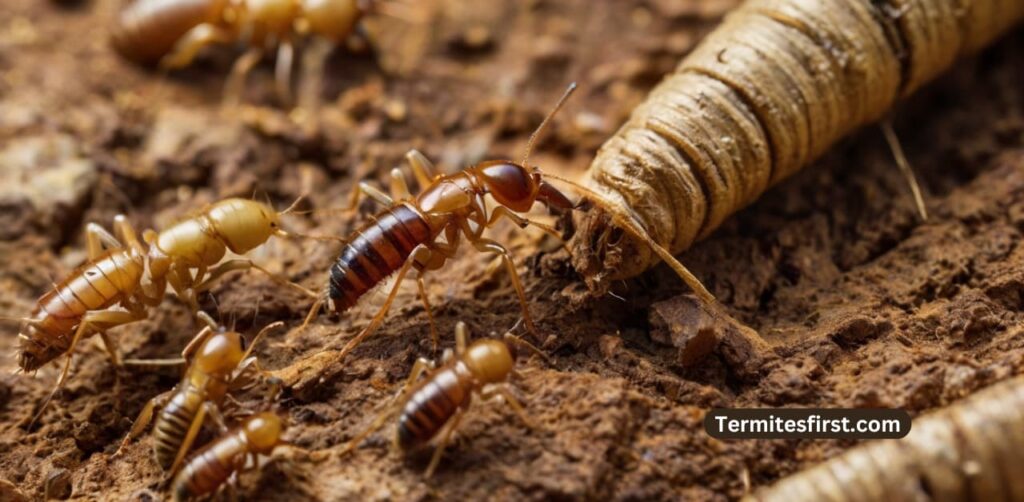
Common Misconceptions about Termite Bites
Many people believe that termites are aggressive towards humans or pets. This is not true. Termites primarily feed on wood and plant material. They do not have the instinct to attack humans. Another misconception is that termites actively seek out human blood or flesh. In reality, termites are not interested in biting humans at all. They focus on their wood-based diet.
Many individuals mistakenly believe that termite bites are common occurrences. In reality, the vast majority will go through life without ever encountering a termite bite. It’s not uncommon for people to misidentify bites from other insects as those inflicted by termites. Addressing these misconceptions is crucial for clarity.
Conditions Under Which Termites Might Bite Humans
Termite bites can occur, but only in rare situations. Soldier termites may bite if they feel threatened. These termites have strong jaws designed for defense. If someone accidentally disturbs a termite colony, a bite could happen as a protective response. Nevertheless, such instances are extremely uncommon and not typical behavior.
I remember reading about a case where a person encountered soldier termites while inspecting a wooden structure. The person was surprised by the bite but realized it was due to accidental disturbance. Such cases highlight that bites are unlikely unless provoked.
Physical Characteristics of Termite Bites
The appearance of a termite bite may resemble other insect bites, such as mosquito or flea bites. They can cause slight redness and swelling, but nothing severe. The sensation from a termite bite is likely to be mild and transient. Most people would hardly notice it after a short time.
The severity of a termite bite is generally low compared to other insect bites like those from spiders or bees. It’s common for people to mistake the discomfort for something more serious, but this isn’t warranted in most cases. I’ve seen friends panic over minor bites, only to find out they were harmless.
Are Termite Bites Dangerous?
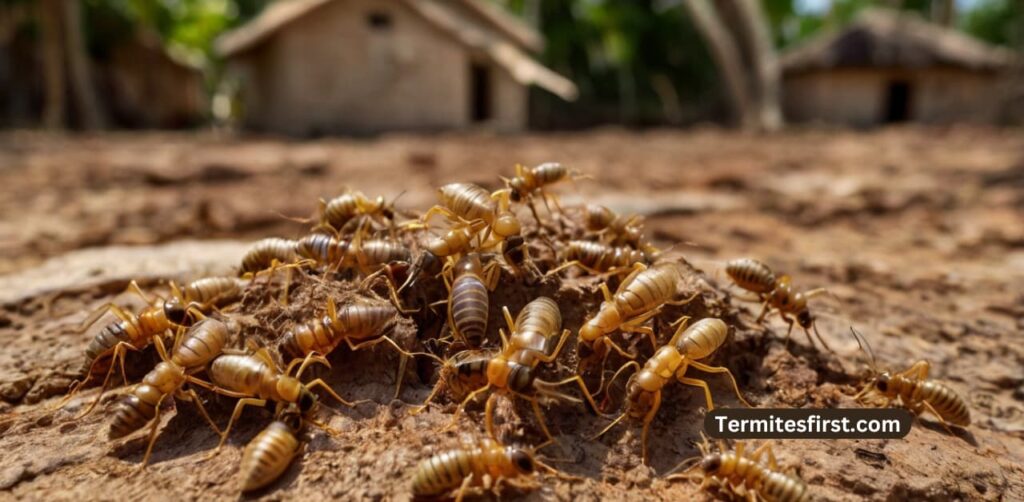
Why Termite Bites are Generally not Harmful
Termite bites are rare. Most people do not encounter them in their daily lives. The powerful termite bite is often exaggerated. These insects possess small mouthparts that limit their ability to bite effectively. They primarily feed on wood and cellulose, not on human flesh. I have never seen anyone suffer serious health issues from a termite bite.
Most individuals will not experience significant reactions to these bites. While they can technically bite, it usually does not result in pain or discomfort. In fact, many people may not even notice a bite occurring. This lack of awareness further emphasizes how uncommon and insignificant termite bites are in the grand scheme of pest interactions.
Potential Reactions to Termite Bites, if any
Individuals might experience slight swelling or irritation following a termite bite, although such reactions are generally mild and easily manageable. While allergic responses to these bites are rare, they can occur. Those with sensitive skin may notice redness or itchiness at the site of the bite. I recall once developing a small bump from an insect bite, which served as a reminder to keep an eye on any unusual changes in my skin.
It’s essential to keep an eye on the bite area for any unusual symptoms. If swelling increases or signs of infection appear, seeking medical advice is wise. However, most reactions resolve quickly without intervention.
Comparison to Bites from other Insects that People often Confuse with Termites
Termite bites differ significantly from those of more common biting insects like mosquitoes or fleas. Mosquito bites often result in immediate itching and red welts. Flea bites usually cluster together and cause intense itching as well. Understanding these differences helps identify the source of the bite.
Many insect bites have distinct symptoms that can help pinpoint the culprit. For example, bed bug bites typically appear in lines or clusters and cause severe itching. Visual identification of the insect can aid in understanding the bite’s origin. When I see a bug, I try to remember its characteristics for future reference.
Preventing Termite Encounters in Your Home
Tips for Preventing Certain Termites
Keeping wood and plant debris away from your home is essential. This simple action can significantly deter termites. I often remind my friends to clear out any unnecessary lumber or fallen branches near their houses.
Sealing cracks and crevices also plays a critical role. These openings allow termites easy access into living spaces. Regular inspections are vital too. They help catch signs of termites early, preventing infestations from worsening.
Home Maintenance Practices to Avoid Attracting Termites
Proper drainage around the home reduces moisture levels. Termites thrive in damp environments, so controlling moisture is key. I’ve seen how effective good drainage can be in my own yard.
Storing firewood away from the house minimizes attraction. Keeping it at least 20 feet away can make a difference. Routine checks of wooden structures are necessary as well. Look for signs of damage or decay that may invite termites.
Importance of Regular pest Inspections and Treatments
Regular inspections can identify termite presence before significant damage occurs. An experienced termite exterminator can spot signs that an untrained eye might miss. I personally schedule these inspections annually to stay ahead of potential problems.
Professional treatments serve as a proactive measure against infestations. Comprehensive termite prevention treatments ensure that your home remains protected. Early detection can save homeowners from costly repairs down the line.
What to Do If You Suspect a Termite Problem
Signs of Termite Infestations in Homes and Structures
Termites can cause significant damage. They often leave clear signs of their presence. Look for mud tubes along walls or foundations. These tubes are made from soil, wood, and saliva. They provide shelter for termites as they travel between their nest and food source.
You might also find discarded wings near windows or doors. Swarming termites shed their wings after mating. This is a strong indicator of an active colony nearby. Another sign includes hollow-sounding wood when tapped. It indicates that termites have eaten away the inside.
I once noticed strange sounds in my home’s wooden beams. Upon inspection, I found small holes and frass—termite droppings—scattered below. Frass looks like tiny pellets and can often be mistaken for sawdust. Unexplained structural damage can also signal a termite issue. Cracks in walls or sagging floors should not be ignored.
Steps to Take if you See Termites or Suspect an Infestation
If you spot termites, act quickly. First, document your sighting with photos. This helps provide evidence when contacting professionals. A clear record of the situation is essential for assessment.
Next, reach out to a pest control professional for help. They have the tools and knowledge to evaluate your property thoroughly. They can identify potential termite infestations and recommend solutions.
Avoid disturbing the termites during this process. Disturbance may lead them to spread further into your home, causing more damage. I learned this lesson the hard way when I tried to handle a few visible termites myself.
Here’s a simple guide on what to do:
- Document the sighting.
- Contact a pest control expert.
- Avoid disturbing the area.
Taking these steps can help manage any potential termite infestation effectively. Early intervention is crucial in preventing extensive damage caused by these pests.
When to Contact a Professional Exterminator for Help
Early Signs
Homeowners should act quickly at the first sign of termites. Noticing mud tubes, discarded wings, or hollow-sounding wood can indicate an infestation. I remember when I first saw mud tubes in my basement. It was alarming and made me realize how serious these pests can be.
Ignoring these signs can lead to extensive damage. Termites can weaken the structural integrity of a home. They consume wood silently, causing costly repairs down the line. I learned that even small infestations can escalate quickly if not addressed.
Importance of Prompt Action
Addressing infestations promptly is crucial. The longer termites are allowed to thrive, the more damage they cause. A small colony can grow into thousands within months. This rapid growth can jeopardize your home’s safety and value.
I once heard about a neighbor who delayed calling for help. Their home suffered significant damage before they took action. It cost them thousands in repairs that could have been avoided with timely intervention.
Professional Expertise
Professionals possess the tools and expertise needed to effectively eliminate termites. They conduct thorough inspections and identify the type of termite present. Different species require different treatment methods.
Exterminators use specialized equipment that homeowners may not have access to. They apply targeted treatments that ensure complete eradication of the pests. This level of precision reduces the risk of future infestations.
I’ve seen firsthand how effective professional help can be. After hiring an exterminator, my home felt safe again. The peace of mind knowing experts handled the situation was invaluable.
Treatment Options
There are various treatment options available through professionals. Some may use liquid pesticides applied to the soil around your foundation. Others might employ bait systems that attract and kill termites over time.
Each method has its advantages and potential drawbacks. Consulting with an expert allows homeowners to choose the best option for their specific situation. I appreciate how knowledgeable exterminators are about these choices.
Termite Myths vs. Facts
Common Myths about Termites and Bites
Many people believe that all termites are harmful to humans and pets. This is simply not true. Most termite species focus on wood consumption. They do not seek out humans for food or attack. The idea that termite bites are a widespread issue is also misleading. While some insects bite, termites generally do not. Their primary concern is their food source, which is wood.
I often hear stories about people fearing termites as pests that can harm them directly. However, I’ve learned through research that these insects are not aggressive. They would rather remain hidden in their colonies than interact with humans.
Clarifying what’s True and What’s False about Termite Behavior
Termites live in large colonies, typically ranging from a few hundred to millions of individuals. Their main goal is to consume cellulose found in wood. They are not a direct threat to human health. Unlike some pests, they do not spread diseases or cause allergic reactions.
Understanding termite behavior is crucial for effective prevention strategies. Recognizing where they thrive helps homeowners take proactive steps. I remember my neighbor once ignoring signs of termite activity until it was too late. Learning about these behaviors could have saved them a lot of trouble.
Why Termites are More of a Structural Threat Than a Direct Threat to People
Termites pose a significant threat to wooden structures over time. They can cause extensive damage if left unchecked. Their ability to consume wood leads to costly repairs and safety hazards for homeowners.
The impact of termite populations can be severe, especially in older homes. Structural damage may lead to weakened foundations or even collapses in extreme cases. While they are not a health risk, their destructive nature warrants attention.
In my experience, I’ve seen homes suffer greatly due to untreated termite infestations. Taking action early can prevent major issues down the line. Homeowners should regularly inspect their properties for signs of these pests.
Conclusion:
I’ve covered a lot about termites and their behavior. While they don’t typically bite humans, understanding their habits is crucial for prevention. Knowing the facts helps debunk myths that can lead to unnecessary fear. If you suspect a termite issue, taking swift action can save you from costly damage.
Don’t wait until it’s too late. If you notice signs of termites, reach out to a professional. They have the expertise to tackle infestations effectively. Stay informed and protect your home. Your peace of mind is worth it.
FAQ’s:
Termites do not typically bite humans. They primarily feed on wood and plant materials. However, if threatened, they may bite defensively, but this is rare.
While termite bites are generally not harmful, they can cause minor irritation or allergic reactions in sensitive individuals. Serious health risks from termite bites are uncommon.
Signs of a termite infestation include discarded wings, mud tubes, and hollow-sounding wood. If you notice these signs, it’s crucial to investigate further.
If you discover termites, act quickly. Remove any infested wood and contact a pest control professional for an inspection and treatment plan.
Yes, most termite species can damage wooden structures in homes. Subterranean and drywood termites are particularly notorious for causing significant structural damage.
You can reduce the risk of termite infestations by eliminating moisture sources, sealing cracks, and keeping wood away from soil. Regular inspections also help catch problems early.
Contact a professional exterminator if you suspect an infestation or see signs of termites. Early intervention is key to preventing extensive damage and costly repairs.

